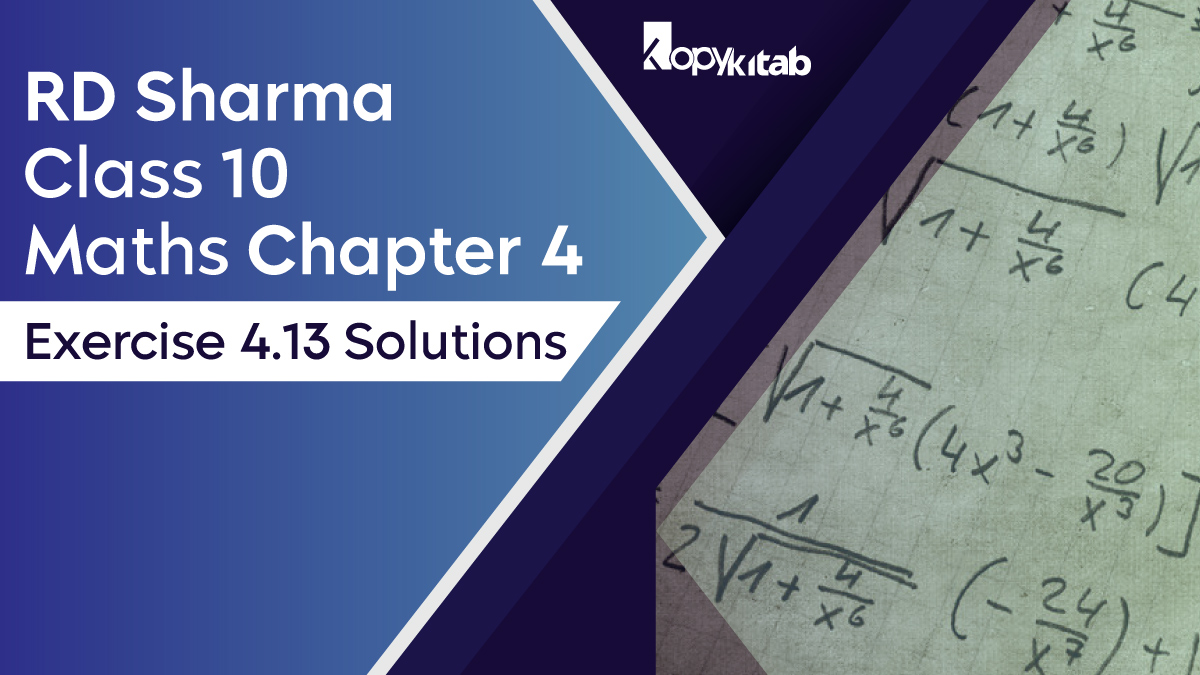RD Sharma Chapter 4 Class 10 Maths Exercise 4.1 Solutions: Quadratic Equations have been compiled to help you score well in the CBSE board exam. It is a compulsory subject of CBSE class 10 syllabus as questions of this subject always get sufficient coverage in the question papers every year. Our RD Sharma Class 10 Maths Solutions Quadratic Equation tells you about quadratic equations, including factoring methods like finding a solution to a quadratic equation, and completing class methods. Here you will also understand the nature of the root and the applications of quadratic equations in daily life.
RD Sharma Chapter 4 Class 10 Maths Exercise 4.13 Solutions has 6 questions and all are word problems based on different topics, in which it is necessary to convert the given information into quadratic equation and then find solutions by applying the methods learned in the chapter.
Download RD Sharma Chapter 4 Class 10 Maths Exercise 4.13 Solutions
RD SHARMA Solutions Class 10 Maths Chapter 8 Ex 8.13
Important Definition for RD Sharma Chapter 4 Class 10 Maths Exercise 4.13 Solutions
- Quadratic Equations
Here you will learn than an equation with the form ax2 + bx + c = 0, with x as the variable and a, b, c as real numbers (where a ≠ 0) is known as a quadratic equation. A quadratic equation is obtained upon equating the quadratic polynomial of the form ax2 + bx + c, a ≠ 0 to zero. Some equations may be of higher degree and need to be simplified before deciding whether it is quadratic or not. We often come across quadratic equations in real-life situations.
- Solving Quadratic Equation by Factorisation
This part of the Chapter tells you that the first method of solving a quadratic equation is the factorisation method. Here values of the variable x are determined, for which a quadratic equation is satisfied. These particular values of x are called the roots of the quadratic equation.
- Solving Quadratic Equation by Completing the Square
This section teaches you that a quadratic equation can also be solved by the method of completing the square like-
(x + a)2 – b2 = 0
- Nature of Roots
This part of Cass 10 Maths Quadratic Equations teaches you that values of real roots vary for a quadratic equation of the form ax2 + bx + c = 0.vWhen b2 – 4ac > 0, then the equation possesses two distinct real roots. In case b2 – 4ac = 0, then the equation has two equal roots (known as coincident roots).
Know more at the official website.
